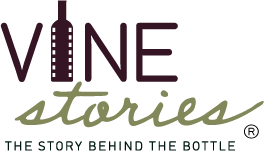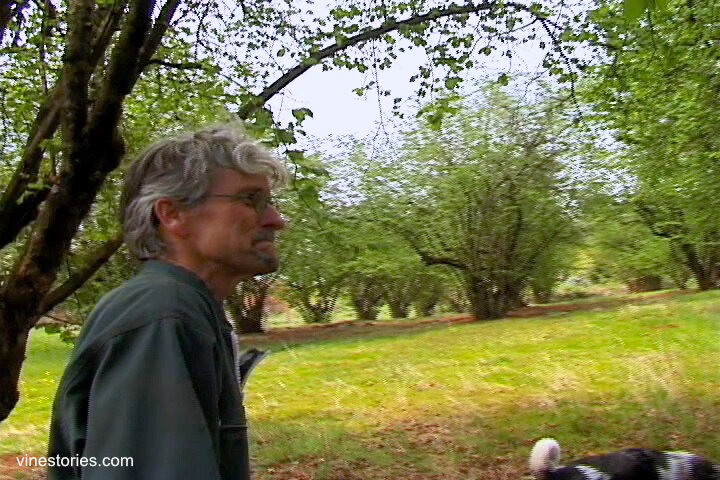Beginnings
Walla Walla test shoot. 2009. The original Sony TRV-900
It started innocently enough.
I took a batch of classes at The Wine House in Los Angeles — Intro to Wine, Wines of the World, and others focusing on specific grape-growing regions from Alsace to Spain.
The shop was literally tucked underneath the constant buzz of traffic above the 405 freeway, but there was magic happening inside.
The classes were a good start, igniting my interest and providing me with a basic framework for tasting and talking about wine.
Most importantly, they began to build my sense memory of the aromas, mouthfeel, and taste of the noble grapes grown in the various regions that made them notable. From there we might try the same wines from a different region to see how that growing environment affected the varietals.
The class was eye-opening. That’s because of an inspirational teacher who imparted a broad-minded yet unpretentious truth that wine was not about massive alcohol levels, scores, and critics — but about food, geology, and agriculture.
Our textbook (The Wine Avenger by Willie Gluckstern) caused a bit of a stir among the wine establishment when it first came out. Between the reading, weekly tastings and instructor, the class demystified wine by empowering us to understand and trust our own senses as we developed our palate. Without overcomplicating things, it started with a very basic understanding of how we perceive wine in terms of our senses:
Color
Aroma
Acid
Sugar
Mouthfeel
The next step was to begin to create a sense memory for the major varietals. “Oh, that’s what Sauvignon Blanc tastes like from the Loire Valley. And here’s one from New Zealand. That’s different. Now let’s try them with different foods.”
Walking with John Paul of Cameron Winery through the Hazelnut trees next to the vineyard. Dundee Hills, OR. Season 1.
The approach made sense. You quickly learn to get a sense of what you like (and that changes), the variations of varietals when they are grown in different places, and how they pair with various foods.
It was all about discovering and learning your particular palate.
The reason that’s important is that wine suddenly becomes something to dive into and explore with confidence, not trepidation. More importantly, it empowers us to explore wines based on flavor and texture profiles, how they taste on their own, and how they pair with food.
From there, I stumbled on a unique wine club that featured monthly offerings from small producers — accompanied by a detailed write-up about their vineyard, winemaking philosophy, and how the growing season impacted the wines in the shipment.
It was an epiphany.
David Adelsheim of Adelsheim Vineyard. Willamette Valley, OR. Season 3.
I could read about the vineyard, how the grapes were grown, and taste the wines in the comfort of my home alone with different foods.
It sparked an idea.
What if I developed a series of short videos featuring smaller production winemakers, let them tell their story, and gave them the opportunity talk about their philosophy without the distraction of an imposed narrator?
It could provide a direct line from the people who grow and make wine and consumers who wanted to learn about it. No ratings. No critics. No boring shots of happy people drinking wine. And no self-centered interviewers inserting themselves into the video. The idea was to let the winemakers talk about their vineyards, philosophy, history and craft and simply serve as a conduit for the information.
I could also leverage my background as a writer/director to help the winemakers feel comfortable on camera, tell a decent story, and edit the videos down to a reasonable length. We would cover the interview with shots from their source vineyards and cellar to provide a sense of the working environment.
Walking with Rick Longoria through Fe Ciega Vineyard just after the morning fog lifted. Season 2.
Shooting mostly in the Spring from 2009 through 2013, we ended up creating over 75 mini-documentaries featuring artisan winemakers across Washington, Oregon and California. The only requisite was that they had to be hands-on growing the grapes and/or making the wine.
Why VineStories?
Winegrowers and winemakers can be great teachers when it comes to enjoying wine. Getting a sense of how climate, soils, growing practices, and winemaking methods can affect the grapes can go a long way to helping you deepen your enjoyment of wine.
Wine, in itself, is not pretentious. As one outspoken veteran in the Dundee Hills of the Willamette Valley put it to me during our time together — “as much as I love growing and making wine — and can go on and on about the magic of a particular vintage or vineyard — my son always brings me back to earth and reminds me —Dad, it’s just a beverage.”
So explore the site, check out the videos, and let’s build a community as we continue to add content and continue this journey.
““There’s at least one lifetime’s worth of learning to do in this space and my regret is I probably have a good 30 vintages left in me and that’s not going to be enough.”
Bobby WITTENBERG
Story has always been at the center of my work.
I graduated from the University of California, Santa Barbara where I was a staff writer and columnist for the daily USCB Daily Nexus. I also discovered my passion for screenwriting and won a Corwin-Metropolitan Theatres Writing Award for my first script, Somebody' Else's Dream.
After graduating, I moved to Los Angeles and began my professional training which included UCLA's Master Class in Screenwriting with instructor Lew Hunter, two tours of Robert McKee’s Story Structure Intensive, production courses at the America Film Institute, and studying at the Howard Fine Acting Studio.
My first stage play, The Crime of Danny Segal, was produced in New York and Los Angeles, followed by Dinner At Grandpa's. Shortly thereafter, I was fortunate that my screenplay The Oinkaroo was awarded a coveted quarterfinalist spot in the Nicholl Fellowship Screenwriting Awards.
VineStories was an unexpected project that carried me along in a whirlwind. I was essentially a one-man production crew — packing my equipment in a Mazda Miata each Spring and driving from Oregon down to California, and then into eastern Washington to gather the material and tell these stories.
At the end of the project, I had spent over 600 hours walking with winemakers and creating this comprehensive series of videos. The result was an unparalleled education in agriculture and winemaking culled from these vineyard-to-cellar interviews and new friendships with a group of diverse, intelligent people pursuing their passion.
Walking and talking with winemakers was a way into that world and provided a unique education in wine that hopefully will enhance your enjoyment as well.
Jacqui DiBernardo
Jacqui has a bachelor’s degree in Comparative Literature from Scripps College. She continued her professional education with class in fiction and copywriting at UCLA Extension. She has written short stories, co-produced the play Dinner At Grandpa’s, written brand video scripts, and is currently working on a novel.
She co-produced the VineStories videos, conceived the website, and has been an instrumental force in researching, editing, and developing this content.







